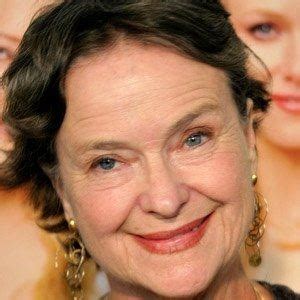A Quote by Diane Johnson
But novels are never about what they are about; that is, there is always deeper, or more general, significance. The author may not be aware of this till she is pretty far along with it. A novel's whole pattern is rarely apparent at the outset of writing, or even at the end; that is when the writer finds out what a novel is about, and the job becomes one of understanding and deepening or sharpening what is already written. That is finding the theme.
Related Quotes
In general, I think every novel is a political novel, in that every novel is an argument about how the world works, who has power, who has a voice, what we should care about. But political novels can be boringly polemical if they end up being too black and white, too one dimensional, like war is bad, killing people is wrong.
Lately I've been thinking about the idea that all novels are, at least in some way, about the process of writing a novel - that the construction of the book and the lineage of people constructing novels are always part of the story the author is telling. I think the equivalent for memoir should be that all memoirs are, in some way, about the process of memory. Memoirs are made out of a confusing, flawed act of creation.
I would like to write a novel, or at least try to write one, although my motives are not entirely pure. For one thing, I get asked about writing novels so much that I feel guilty about never having written one. And although I have no strong desire to write a novel, I would hate not to try. That would just be silly. On the other hand, I hate the idea of slogging through something that turns out to be not good.
The more readings a novel has, even contradictory, the better. In journalism, you talk about what you know; you have provided yourself with records, you have gathered information, you have performed interviews. In a novel, you talk about what you don't know, because the novel comes from the unconscious. They are very different relationships with words and with the world. In journalism, you talk about trees; in the novel, you try to talk about the forest.
I've been thinking a lot about why it was so important to me to do The Idiot as a novel, and not a memoir. One reason is the great love of novels that I keep droning on about. I've always loved reading novels. I've wanted to write novels since I was little. I started my first novel when I was seven.I don't have the same connection to memoir or nonfiction or essays. Writing nonfiction makes me feel a little bit as if I'm producing a product I don't consume - it's a really alienating feeling.
I don't revise a lot when writing short stories. As far as the novel, I definitely thought more about plot. Honestly, I'm still pretty confused about what "plot" means. I've been reading some of my Goodreads reviews and one reader noted that the The Last Days of California "reads like a short story stretched to the breaking point, padded and brought into novel range..." I don't know what people want, really.




































